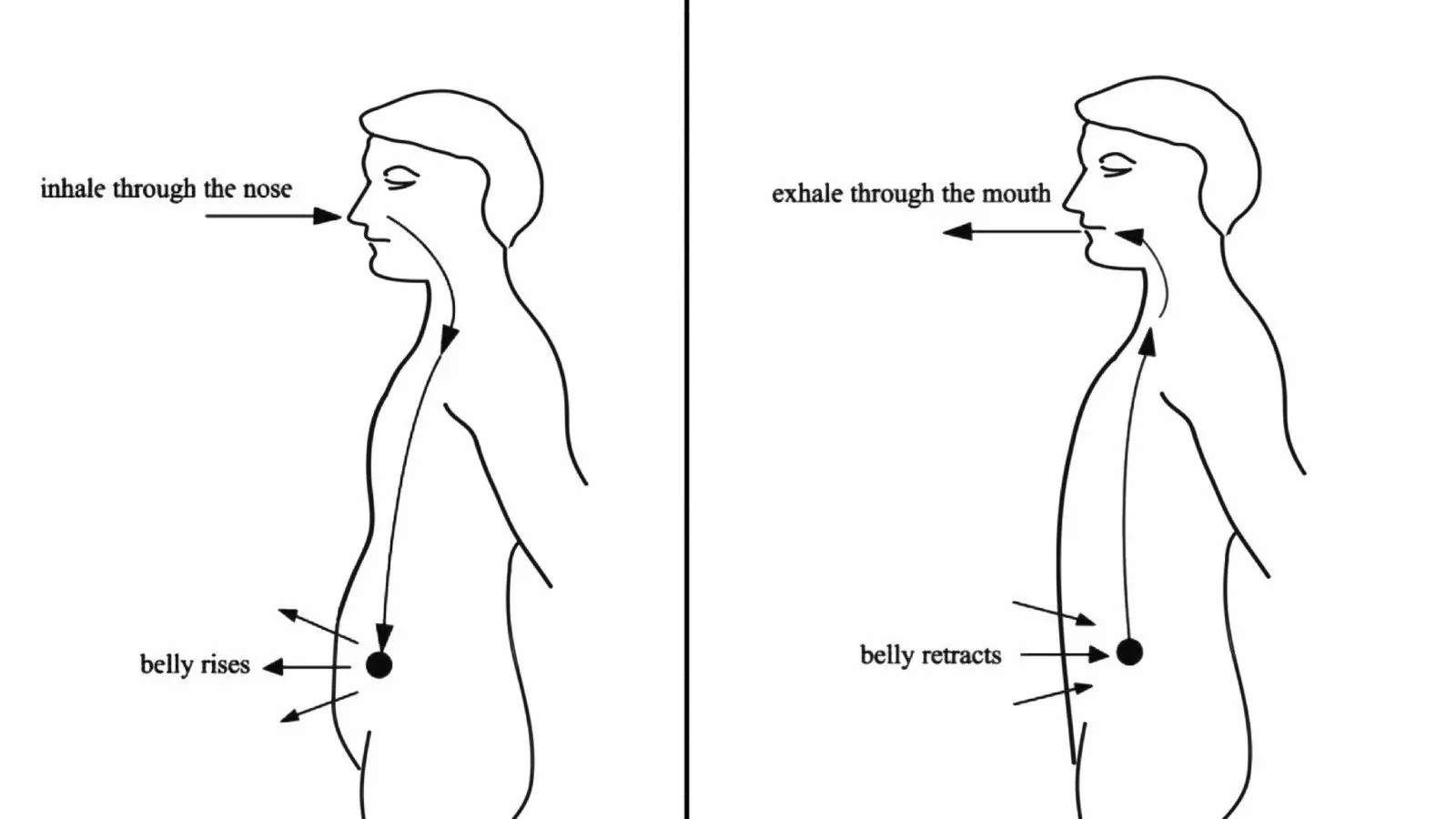Breathing is an involuntary action that our bodies do whether or not we’re conscious of doing it. That means that we have to actively force ourselves not to breathe rather than the other way around.
Our bodies need oxygen to survive, not only to keep us breathing but to circulate oxygen through our blood, which then circulates oxygen to all of our vital organs, our cells, and the tissue in our bodies.
When our blood doesn’t have enough oxygen, it’s called hypoxemia.
“Hypoxemia can be acute, occurring suddenly because of an emergency, or chronic, taking place over time because of a long-term health condition like COPD,” adds Deborah Leader RN, BSN, PHN.
Whether or not a low level of oxygen in the blood is causing severe problems, there are still ways to tell when your blood isn’t getting the required oxygen levels.
Here Are Five Signs Your Blood Does Not Have Enough Oxygen
These five signs are the primary indicators that you might have hypoxemia.
1. Weakness or dizziness
A common sign of having low oxygen in your blood is getting weak or dizzy more quickly than usual.
Has this ever happened to you?
If you answered yes, it doesn’t necessarily mean you have low oxygen in your blood. Most people have experienced standing up too quickly and getting dizzy, or their vision blurs for a short moment.
However, people who don’t have enough oxygen in their blood often find that this happens daily, during any level of light or strenuous activity.
Family physician Dr. D. Love states, “The muscle can burn fuel without oxygen for a limited time, but it cannot be maintained indefinitely. Therefore, chronically low oxygen levels will cause muscle weakness. It would be unusual that a low oxygen level will cause muscle weakness as a sole symptom; it would be expected that there would also be shortness of breath.”
Since your blood carries oxygen in the blood throughout your body, getting weak or dizzy quickly is a sign that your blood isn’t carrying enough oxygen to all the places it needs to go.
2. Chronic fatigue or exhaustion
Chronic fatigue is a significant sign that your body isn’t getting the oxygen that it needs in its blood. There are different types of feeling tired, but fatigue associated with hypoxemia is chronic and never-ending.
According to Dr. Graham Rogers, “Without the proper exchange of gases, your body can’t get the oxygen it needs. Over time, you will develop low blood oxygen levels, a condition called hypoxemia. When your body is low on oxygen, you feel tired. Fatigue comes more quickly when your lungs can’t properly inhale and exhale air.”
People often report feeling exhausted halfway through the day, and no amount of sleep seems to be helping. Getting tired more quickly than others, or more rapidly than you used to, is also a sign that your blood isn’t getting enough oxygen.
3. Pounding or racing heart
Feelings of anxiety are often categorized by a racing or fast-beating heart. This symptom signifies that your heart is working hard to get oxygen to all the places it needs to go inside your body because there isn’t enough of it.
Suppose you’ve never experienced anxiety symptoms before, and your body has started to exhibit a racing heart without other anxiety symptoms. In that case, it might be due to a low oxygen level in the blood.
4. Shortness of breath
Of course, lack of oxygen means that you’re going to have trouble breathing. When you have difficulty breathing and pulling in oxygen, you’re going to have trouble getting enough oxygen into your blood as a result.
People who lack oxygen in their blood also report being short of breath whether or not they’re performing strenuous activity.
5. Headache and confusion
Ever get a pounding head after holding your breath? Many people experience headaches, and they can vary in severity.
By themselves, headaches aren’t a worrying sign of lack of oxygen in the blood. But paired with confusion, dizziness, and a lack of coordination, headaches can be a sign that your body isn’t circulating the amount of oxygen that it needs. Some people report feeling faint.
“Your brain needs a certain amount of blood flow and oxygen to run efficiently, and for us to feel healthy, and if that mechanism is damaged, your brain knows other ways to generate the pressure that it needs,” says Dr. Patrick M. Nemechek
When your blood lacks oxygen, it can be challenging to concentrate and coordinate your body, leading to headaches and confusion.
“Without enough oxygen in the lungs, the organs cannot function properly. As a result, toxins accumulate in the bloodstream, and vascular headaches ensue. This happens because low oxygen levels initiate the widening of blood vessels and bring on migraines,” says Dr. Mark Wiley.
A lack of oxygen in the blood can cause concern because it often precipitates or stems from other diseases or illnesses. If you have any of these symptoms, see your family physician receive a diagnosis. These red flags may indicate other health concerns that need medical attention.
How Exactly Can You Recover from Lacking Oxygen in Your Blood?
Now that you know what happens when you have low oxygen in your blood, you have another question. How will your doctor treat the condition? Here are six specific treatment options they might recommend.
1. The doctor will test you to confirm a diagnosis
Going to the doctor and getting tests done to determine how much oxygen is in your blood is the first step to getting the issue treated. The doctor will run a series of tests to see how much oxygen is in your blood and then test for the common causes of low oxygen levels.
Your doctor will then treat those problems, whatever they may be. Your heart, for example, may need help pumping correctly and may need intervention to pump better and improve your blood circulation.
2. Nasal cannula
Hypoxemia that isn’t very severe can be treated through a portable oxygen mask or nasal cannula, a thin tube with two separate openings that sit just inside your nostrils. This equipment will pump oxygen into your body and allow more oxygen to circulate through your blood. This device is a short-term treatment that doctors rely on to get your oxygen levels up.
Once you are stable, your physician will tailor a care plan to help you feel well again.
3. Regular oxygen use
When the level of oxygen in the blood is severely low, a doctor will often prescribe regular and long-term oxygen use. Depending on the severity of the oxygen levels in your blood, your doctor may have you use oxygen daily, overnight, or periodically throughout your day.
4. Eat nourishing, iron-dense food
According to The Lung Institute, eating an iron-rich diet can help you recover from hypoxemia. They explain that this dietary adjustment works because an underlying iron deficiency might cause the imbalance.
The American Red Cross offers this extensive list of foods that help boost iron levels:
Animal proteins:
- Eggs
- Beef
- Lamb
- Veal
- Chicken
- Turkey
- Ham
- Pork
Seafood:
- Clams
- Shrimp
- Tuna
- Sardines
- Mackerel
- Haddock
- Oysters
- Scallops
Beans and legumes:
- Tofu
- Kidney beans
- Garbanzos or chickpeas
- Navy beans
- Pintos
- Black beans
Leafy green vegetables:
- Spinach
- Swiss chard
- Dandelion greens
- Beet greens
- Kale
- Collard greens
Fruits and vegetables:
- Tomatoes
- Peas
- Sweet potatoes
- Broccoli
- String beans
- Strawberries
- Dates
- Figs
- Raisins
- Prunes and prune juice
- Dried apricots or peaches
Grains:
- Enriched white or whole wheat bread
- Enriched pasta
- Wheat flour
- Bran cereals
- Oatmeal
- Rye products
- Enriched rice
- Cornmeal
5. Exercise (even a little bit helps)
The Mayo Clinic suggests that engaging in exercise will help to improve breathing difficulties, boosting your respiration. Thus, you will replenish the oxygen in your blood.
Talk to your doctor on how to get started safely. They will likely tell you to start with short walks once a day, building up from there. They might also recommend you try gentle exercises such as yoga or light stretching exercises.
As you build up a tolerance for easy exercise, you will build stamina. Your doctor will challenge you to take your efforts to the next level once they believe you are ready to do so.
As an additional benefit, you might also shed a few pounds as you become more active, making it much easier to breathe.
6. Avoid cigarette smoke
Whether you are a smoker or find yourself in second-hand smoke, you should avoid it altogether.
A study published in the European Respiratory Journal points to cigarette smoke as a significant contributor to COPD, hypoxemia, and narrowed arteries. Each of these can lead to heart attack, stroke, brain damage, and other devastating outcomes.
Speak with your family doctor about quitting. If you are a non-smoker who lives with someone who smokes, discuss your health with them and support them in their effort to quit their nicotine habit.
 Final thoughts on Restoring Oxygen in Your Blood to Healthy Levels
Final thoughts on Restoring Oxygen in Your Blood to Healthy Levels
“Oxygen is one of the most abundant elements in the universe. It’s a bit ironic, then, that people with breathing problems can’t seem to get enough of it.” – Deborah Leader RN, BSN, PHN.
If you’re concerned with symptoms of low oxygen levels in your blood, it’s best to book an appointment with your doctor and have any necessary tests done to ensure that everything is working right.
Low oxygen levels can cause other health risks, so getting it addressed and treated as quickly as possible is the best course of action.













